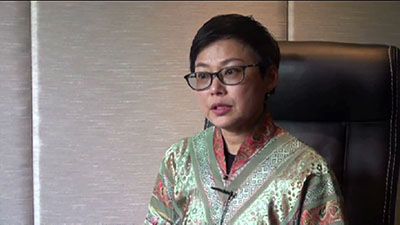 Though Small and Medium Enterprise (SME) make up to 95 per cent of registered business in Bhutan, only about 11 per cent of total employment has been created. Their contribution to the Gross Domestic Product (GDP) remains at four per cent. SMEs are facing growth constraint due to limited access to bank financing according to the Asian Development Bank (ADB).
Though Small and Medium Enterprise (SME) make up to 95 per cent of registered business in Bhutan, only about 11 per cent of total employment has been created. Their contribution to the Gross Domestic Product (GDP) remains at four per cent. SMEs are facing growth constraint due to limited access to bank financing according to the Asian Development Bank (ADB).
SMEs are currently relying on internal funding or retained earnings.
Bhutan has implemented various initiatives to expand banking for SMEs by introducing priority sector lending and approving for the first Cottage and Small Industry (CSI) bank. However, financing has remained low. Banks in Bhutan are found favouring loans for capital investments and leasing off agribusiness machinery to larger business sectors, neglecting micro and small entrepreneurs.
 “SME in Bhutan is based in community and CSI is linked with the government’s priority sector. ADB has also aligned ourself with this. Given that the challenge that we identified is access to finance because they need fund. For instance, they need to dry mushroom to add value. For that, they need fund to procure equipment,” said Kanokpan Lao-Araya, the Country Director of Bhutan Resident Mission, ADB.
“SME in Bhutan is based in community and CSI is linked with the government’s priority sector. ADB has also aligned ourself with this. Given that the challenge that we identified is access to finance because they need fund. For instance, they need to dry mushroom to add value. For that, they need fund to procure equipment,” said Kanokpan Lao-Araya, the Country Director of Bhutan Resident Mission, ADB.
She says strengthening SMEs is critical for improving the country’s economy. To serve the financial needs of the individual entrepreneurs and small scale business, ADB has been holding a regional workshop on Risk Management of SME Lending with financial Institutions from Bhutan and Nepal. Around 35 participants attended the workshop in Paro, which ended today.
“We have a session where we discuss how to use the different financial instrument. For example, SME may not have enough land and property to use as collateral to get credit for them to operate their business. So, there are new ways of doing things, which is what we call movable asset that we can register them and use them as collateral. So this has been done successfully in other countries that ADB has assisted. This can be developed in Bhutan and would help SME.”
Bhutan’s Cottage, Small and Medium Industry Strategy 2012 to 2020 states that more emphasis would be given to women-owned SMEs and the workshop ensure to serve women’s market need.
Sangay Chezom












